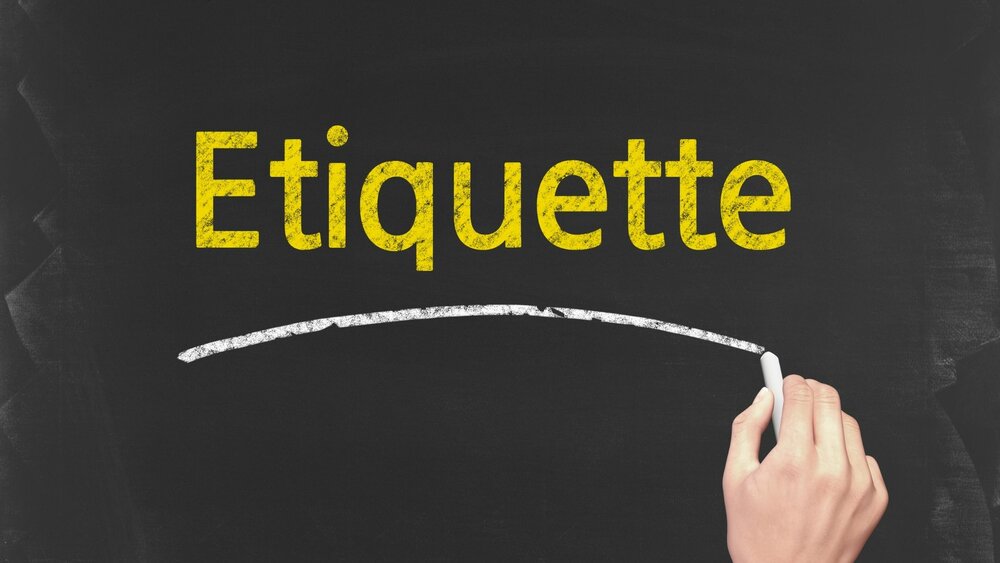Funeral Etiquette 101
Monday, October 16, 2023
Funerals are solemn occasions that require a high degree of sensitivity and respect. At Willowbrook Cemetery, we believe that understanding Funeral Etiquette 101 is essential in supporting grieving families and ensuring the atmosphere remains dignified and comforting.
Funeral Etiquette 101
Here are some of the basic funeral etiquette guidelines to help you navigate these emotional events with compassion and grace.
- Attire - Dressing appropriately is one of the most crucial aspects of funeral etiquette. Generally, wearing dark, subdued, and conservative clothing is considered respectful. Black, gray, or navy are common choices, and avoiding vibrant colors or flashy accessories is advisable.
- Arriving on Time - Arriving promptly shows respect for the grieving family and the departed. If you anticipate that you might be running late, it's considerate to quietly enter the venue and take a seat at the back of the room.
- Mobile Phones - Silence or turn off your mobile phone before entering the funeral service. The last thing anyone wants during a solemn occasion is the interruption of a ringing or buzzing phone. If you must take an urgent call, step outside discreetly.
- Expressing Condolences - Offering your condolences is a fundamental part of funeral etiquette. Whether you knew the deceased well or not, a simple "I'm sorry for your loss," or a warm hug can comfort the grieving family. Sharing a brief memory or anecdote can be particularly meaningful if you know the deceased.
- Offering Help - Grieving families often appreciate offers of assistance with tasks such as cooking, cleaning, or errands. Extend your support by asking if there's anything you can do to ease their burden during this difficult time.
- Respect the Seating Arrangement - In many cases, the front rows of the venue are reserved for close family members and friends. If you are not part of this group, only seat yourself in the front rows if invited. Respect the seating arrangement to ensure the family's comfort.
- Be Mindful of Cultural or Religious Practices - Familiarize yourself with the religious or cultural practices of the deceased and their family. Different faiths and cultures have specific funeral customs; understanding them can help you participate respectfully.
- Keep Conversations Appropriate - If you converse with others attending the funeral, ensure that the topics are appropriate and sensitive. Avoid discussing unrelated or controversial matters. The focus should be on respecting the departed and supporting the grieving family.
Pay attention to eulogies and rituals, don't overstay your welcome. It would help if you also offered condolences in writing
For more information on Funeral Etiquette 101, please call Willowbrook Cemetery. We can help you select a calm final resting place for your cherished one at our cemetery. You can contact us via the form or number on this page.
Previous Posts
Willowbrook Cemetery: A Timeless Sanctuary of Peace, Heritage, and Innovation
Nestled in the heart of Westport, Connecticut, Willowbrook Cemetery has stood as a serene sanctuary since its establishment in 1847. For over 175 years, it has offered families a place of solace, r...
Discover the Comprehensive Services Offered by Willowbrook Cemetery
Choosing a final resting place is one of the most deeply personal decisions a family can make. It is a choice that reflects respect, love, and the legacy left behind. At Willowbrook Cemetery, we un...
Choosing a Jewish Cemetery Plot in Fairfield County: A Local Guide
Choosing a final resting place is a deeply personal decision—one that carries spiritual, emotional, and practical weight. For Jewish families in Fairfield County, finding a cemetery that honors tra...
Cremation Garden: A Beautiful Memorial Space for Modern Families
As cremation becomes an increasingly popular choice for families across Connecticut, the concept of a cremation garden has emerged as a beautiful alternative to traditional burial plots. At Willowb...
Non-Denominational Cemetery: Embracing All Traditions
In today's diverse world, families increasingly seek burial options that reflect their unique beliefs and values. A non-denominational cemetery offers the perfect solution, providing sacred space w...
Finding Affordable Grave Markers and Headstones: A Complete Guide from Willowbrook Cemetery
Honoring a loved one's memory shouldn't create financial hardship. At Willowbrook Cemetery in Westport, Connecticut, families discover that dignity and quality can coexist with affordability. Their...
Jewish Cemeteries in Weston: Honoring Tradition at Willowbrook Cemetery
When searching for Jewish cemeteries in Weston, Connecticut, families seeking a dignified final resting place that honors Jewish traditions need look no further than the nearby Willowbrook Cemetery...
Private Mausoleum Property: Exploring Elegant Mausoleums for Cremation at Willowbrook Cemetery
When considering eternal resting places, private mausoleum property offers a timeless elegance that few other memorial options can match. At Willowbrook Cemetery in Westport, Connecticut, families ...
Jewish Cemeteries in Norwalk: Modern Cremation Options at Willowbrook Cemetery
For families seeking Jewish cemeteries in Norwalk and surrounding communities, Willowbrook Cemetery offers a unique blend of tradition and contemporary memorial options. As a non-sectarian cemetery...
How Much Does a Cemetery Plot Cost? Affordable Options at Willowbrook Non-Denominational Cemetery
When planning for the future or facing the loss of a loved one, understanding cemetery costs becomes essential. One of the most common questions families ask is: "How much does a cemetery plot cost...





Comments